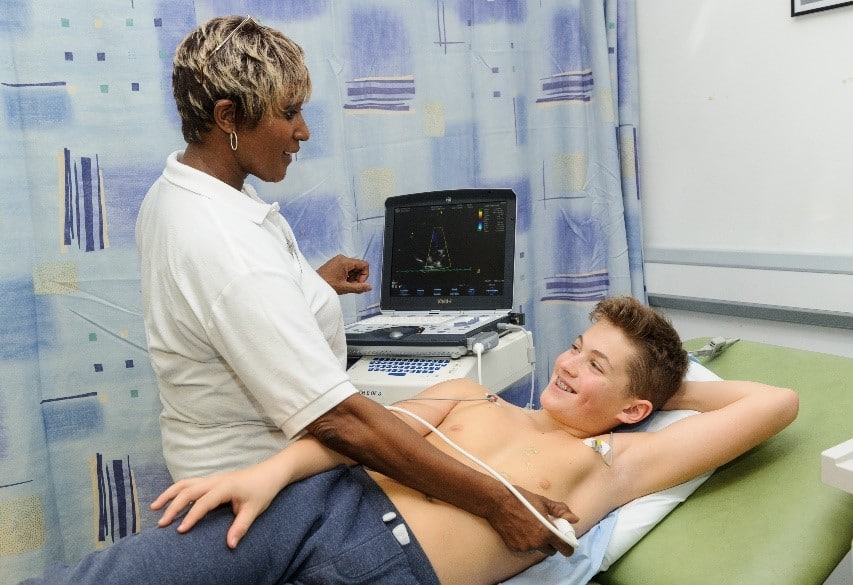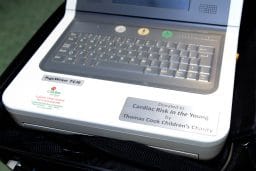CRY regularly purchases new machinery to maintain and expand on its cardiac screening programme, allowing us to screen even more young people. Below are pieces of machinery that would allow CRY to maintain (ECG, Echo and Holter Monitor) and also expand (CMRI Machine) its cardiac screening programme.
Electrocardiograph (ECG) Machine – £6,000
An Electrocardiograph machine is an important piece of equipment for CRY’s cardiac screening programme. CRY’s screening services are vital in order to identify potentially life-threatening cardiac conditions in those between the ages of 14-35.
Screening with an ECG (Electrocardiogram) is aimed at identifying people with conditions such as cardiomyopathies or electrical faults of the heart. An ECG records the natural electrical activity of a person’s heart. The heart produces electrical impulses which cause the heart to contract. An ECG machine is able to detect these rhythms and therefore tell if there is a problem with the heart.
In order to sustain CRY’s screening services, CRY regularly purchases new machinery such as Electrocardiograph (ECG) machines, along with their consumables and parts.
Echocardiograph (ECHO) Machine – £28,000-£80,000
Echocardiograph machines are also needed as part of CRY’s screening programme as after an ECG is taken, 5-10% of individuals will require an additional test if any abnormalities are found.
Echocardiograph machines look at the structure of the heart and with information provided on screen, measurements are taken which give a guide to heart muscle thickness and the size of the chambers of the heart.
Cardiac Magnetic Resonance (CMR) Scan – £1,000,000
The CMR scanner is used to examine the structure of the heart and the nature of its muscle. It uses a magnetic resonance scanner that creates intense fluctuating magnetic fields around the body while the patient is inside the scanner. This generates the signals that make up the pictures produced. It can be useful for detecting and assessing cardiomyopathy and can also be useful to assess myocarditis, coronary artery anomalies or the signs of coronary artery disease.
Holter Monitor – £1,265
The Holter is a recording device that records the electrical activity of your heart for 24 to 48 hours, or for up to 7 days if a digital one is used. A Holter monitor is usually used if an ECG or Echocardiograph of the heart does not give enough information about the heart’s condition.
The device is worn around the waist and can have anything between three to twelve ECG leads from the device taped to the chest. The doctor can analyse the electrical activity and rhythm of the heart to find out if the patient has any arrhythmias or other features which may be present in certain conditions such as LQTS and Brugada syndrome.
Help us fund projects like this. Your donation helps CRY’s work to save young lives and support families affected by young sudden cardiac death.
To help fund or to find out more information about this project or any other of our projects, please contact [email protected].








